At Crate Free USA, our mission is to improve the lives of animals raised for food. And since the vast majority of Americans still eat meat, the best way to do this is to shop from local farmers who care about the animals they raise far more than the huge factory farms and corporations who own so much of the food industry today. While we do promote a reduction of meat in your diet, we also support our local farmers who raise animals more humanely and sustainably.
It’s easy for you to find a local, sustainable farmer near you in Illinois.
Just download our free mobile app!
Twenty-one years ago, Jody and Beth Osmund left corporate jobs in the Chicago area (Allstate and Arthur Anderson) to start Cedar Valley Sustainable Farm. Jody went back to the profession he’d grown up in, and Beth returned to hometown roots and a new farming adventure.
To prosper, the Osmunds knew Cedar Valley Sustainable Farm had to operate differently than the industrial farms overtaking the landscape. They chose the Community Supported Agriculture (CSA) model for their enterprise and began with vegetables. In CSA, customers “subscribe” to a farm that aligns with their values (sustainable, humane, drug and chemical-free, etc.) and get a share of the harvest.
Over the years, they added livestock to the farm and 17 years ago started the first meat and egg CSA in Illinois. They no longer raise vegetables, and are now producing beef, chicken, pork, lamb, and eggs for their customers. Their animals are raised with respect for their natures and not treated as cogs in an industrial process.
In addition to farming, Jody and Beth have taken on a number of education, advocacy, and activist roles to promote humane and sustainable livestock farming. This ranges from speaking to local community groups to presenting at international food and farming conferences and everything in between.
Tell us about your farm: (kind of animals? Approx. size of farm? Cage-free? Pasture raised?)
Cedar Valley Sustainable Farm is approximately 90 acres, over half of which is river and riparian woodlands. The rest is grazing land for laying chickens, meat chickens, hogs, and sheep. The Osmund’s partner with another farm for beef. Laying hens are free-range. Meat chickens graze in floorless enclosed “tractors” that are moved to fresh grass daily. Hogs graze and root in the dirt and live lives 180 degrees from their factory farm counterparts. Sheep are rotationally grazed and finished on grass.
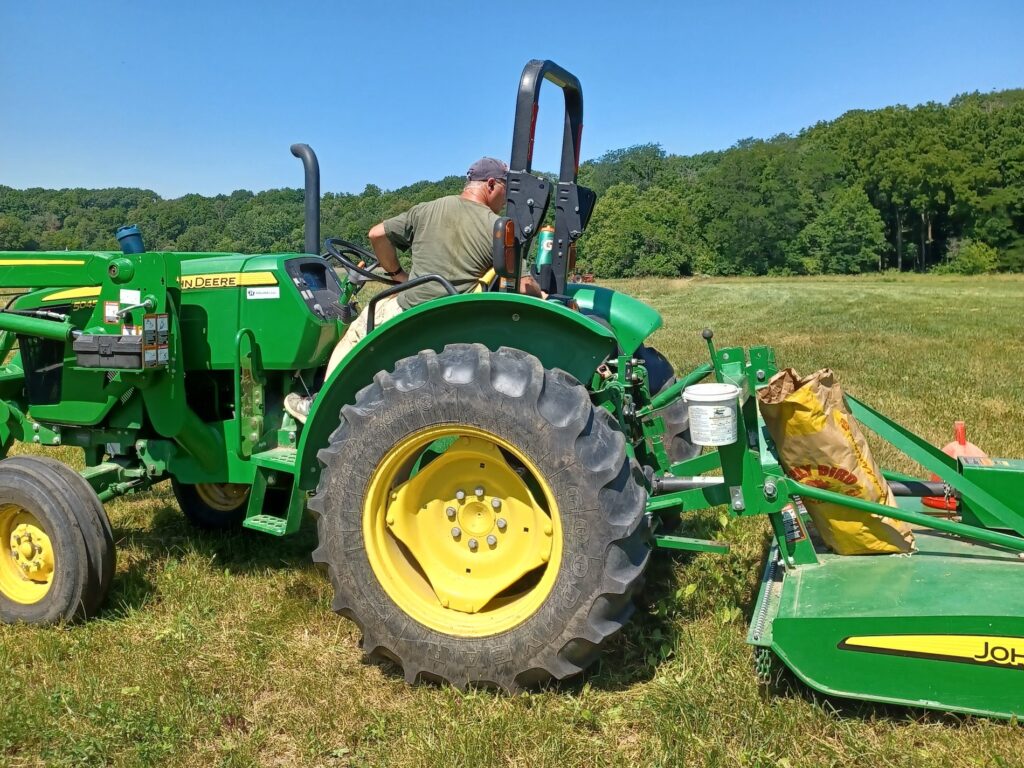
How did you first become involved in farming?
Jody was raised on a diverse grain and livestock farm. Beth became a farmer by marriage and inclination. The Osmund’s farm is much like Jody’s grandparents who raised a mix of livestock and produce that they sold to their community.
Why is farming sustainably and humanely important to you?
We’re parents and one day will likely be grandparents. Leaving the world a bit better and a legacy of ethics and humanity to our kids is important to us. Although our farm is tiny and fills a very small niche, we hope our example is a pebble that leaves a lot of positive ripples.
How have the economics of farming changed in the last several years and how has it affected you? What further changes are you anticipating?
The global pandemic had a big effect on our farm. Demand for our CSA exploded which meant we dropped a lucrative weekly farmers market we had attended for over a decade. While reclaiming our Sundays has been nice, as the pandemic subsided so has demand for our CSA. We’re increasing marketing and adding back a Wednesday market. If revenues don’t rebound sufficiently, we will transition to work outside of agriculture.
What are your views on extreme confinement and gestation crates for pigs
They’re cruel and inhumane.
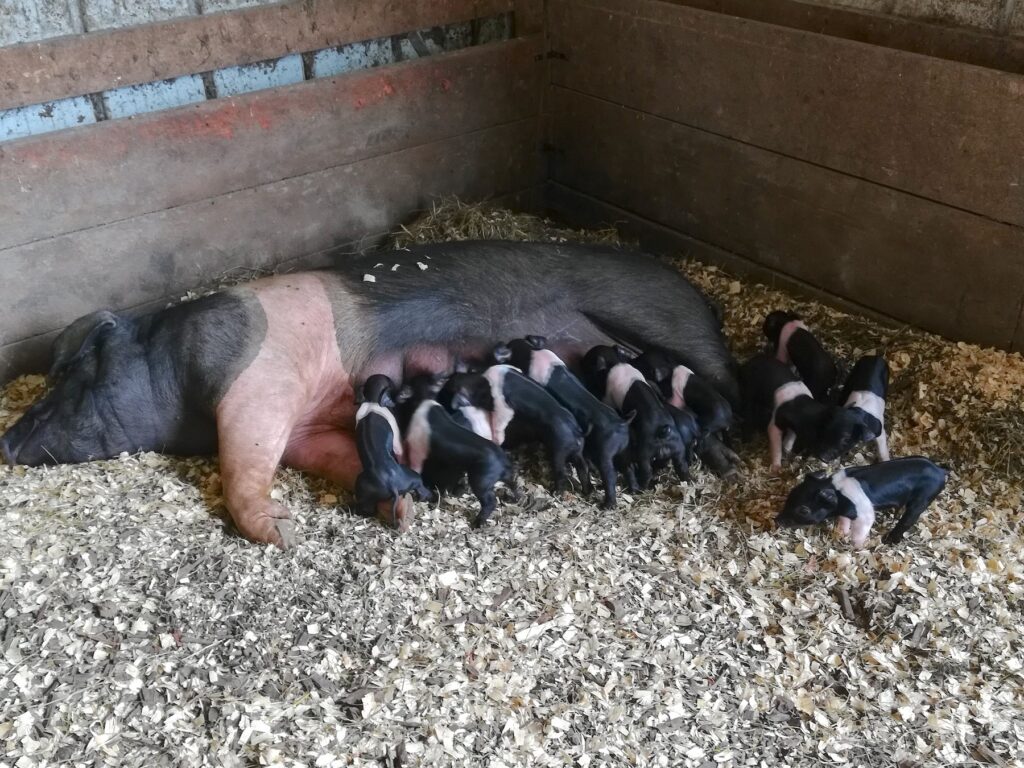
Pasture-raised pigs at Cedar Valley Sustainable Farm
Would you support a bill to end extreme confinement? Why or why not?
Yes, see above.
What is your current slaughter process? What do you think about mobile abattoirs and is that something you would potentially use?
We use an organically certified processor about 75 miles from the farm. To reduce stress on the animals, we deliver them to the butcher the day before slaughter. I believe mobile abattoirs would be a benefit to more remote farms, but don’t foresee using them in our operation.
What can consumers do to help improve the lives of all our farm animals? Is there anything else you’d like to share?
Eat less meat and eat better meat. Know where your meat is coming from, who is raising it and how it is being treated. When you find a farmer or a market that provides this for you support them and share it with your friends, family, and neighbors. Vote for people who support and promote sustainability not corporate profits.
How do you market and sell your products? How can people shop with you/find you? Can they visit the farm?
We offer farm events spring through fall.
.
The Illinois Guide to FACTORY- MEAT, DAIRY, & EGGS
As always, to find a local farm farm near you, please
download our app, The Illinois Guide to Factory-Free Meat, Dairy, and Eggs. Here you can buy direct from a local, sustainable farmer, not animal factories. Use the app to search for local farms, farmers markets, and restaurants that source humanely raised meat, dairy, and eggs.

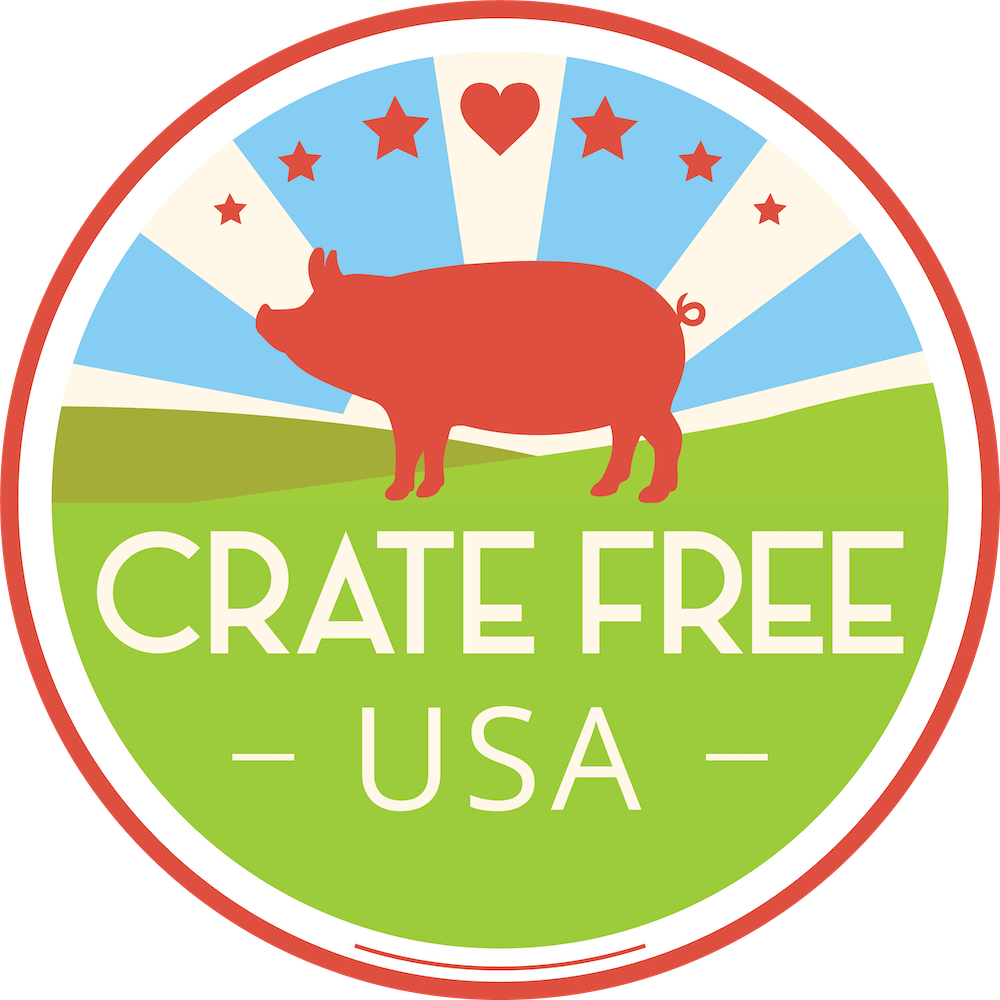
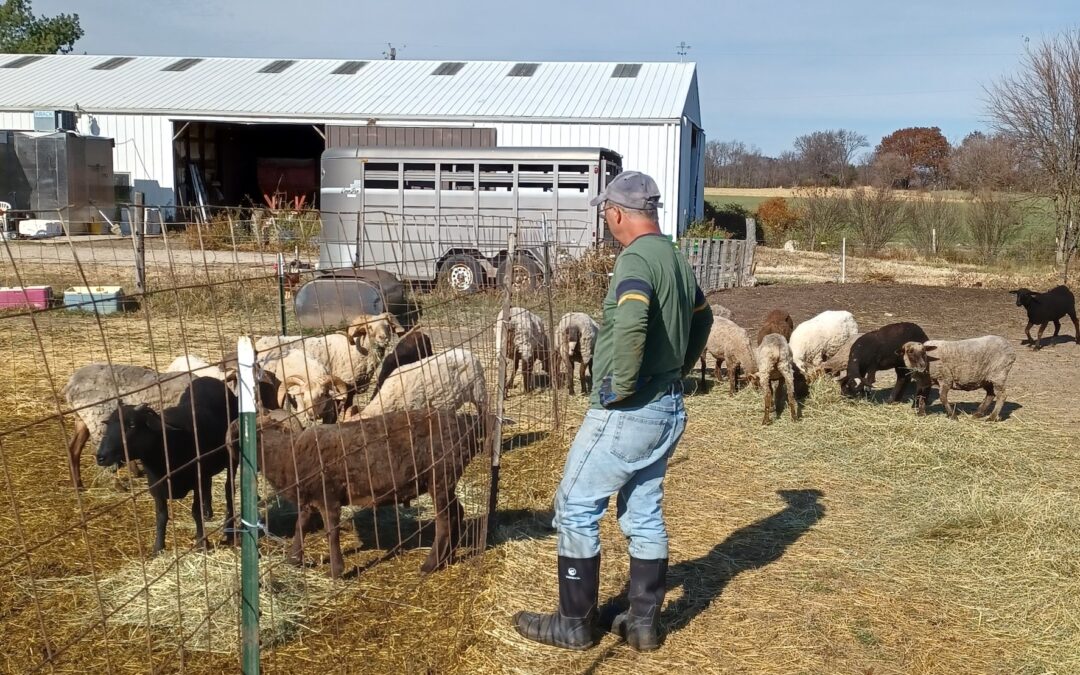

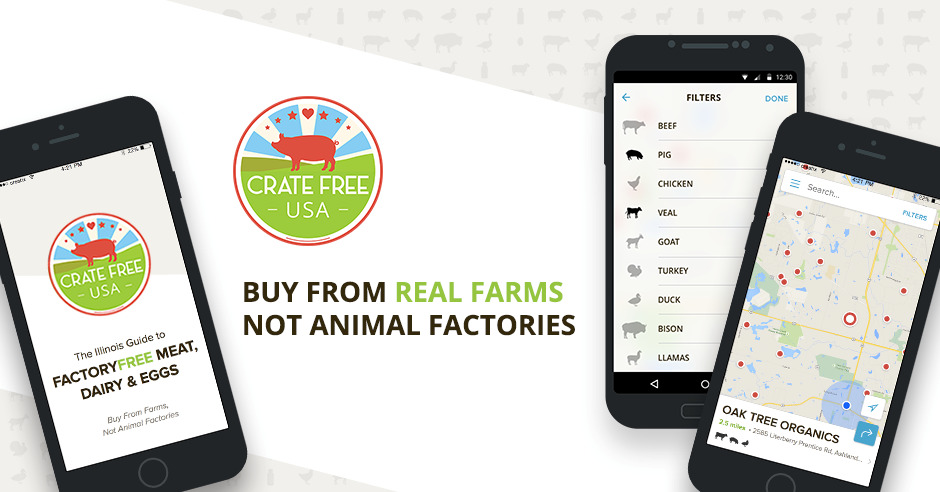
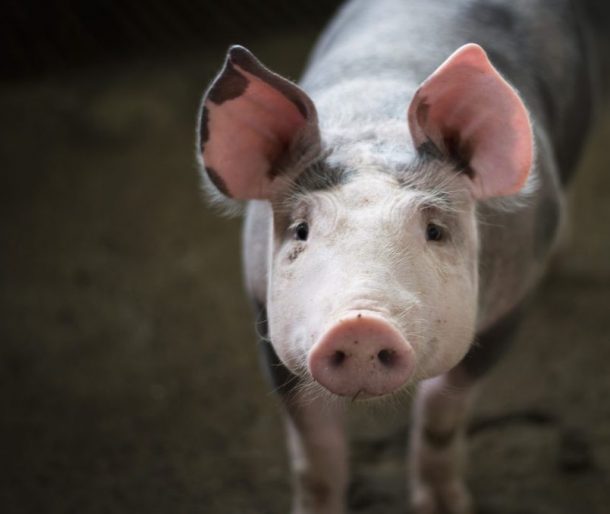
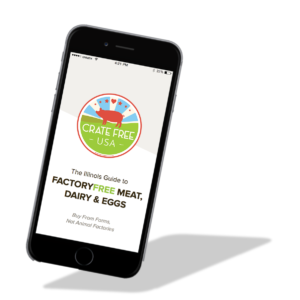
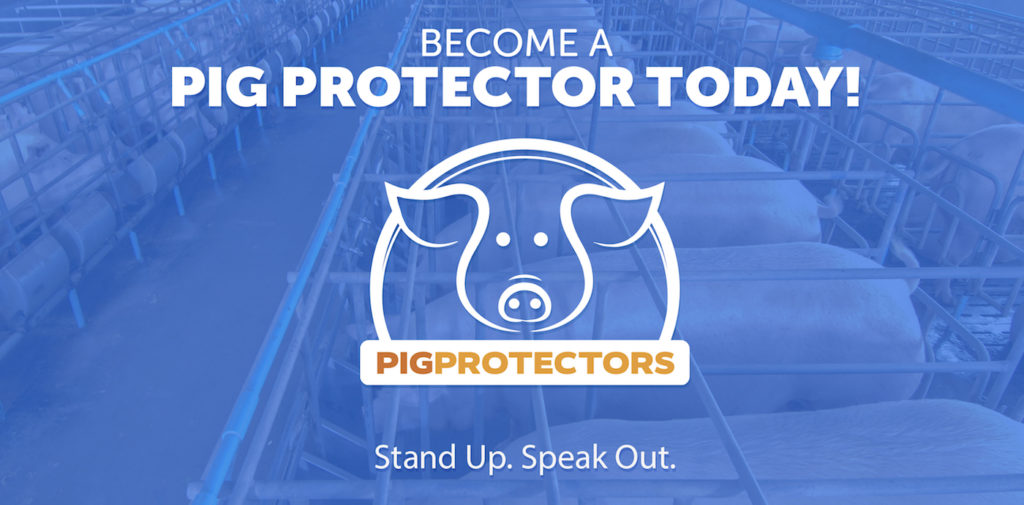
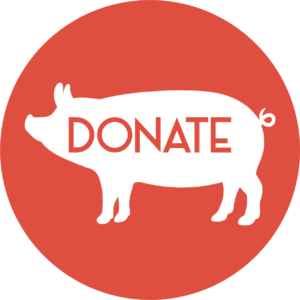
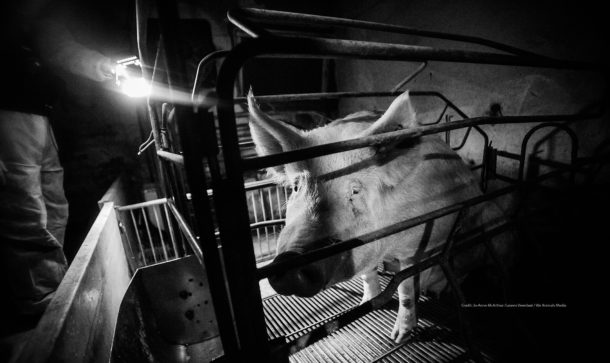
Respect for all life is an important facet of living a good life